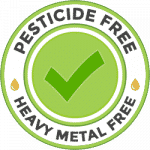The Case for Sustainable Agriculture===
As the world becomes increasingly aware of the impact of industrialization on the environment, there is a growing movement towards sustainable agriculture. This approach aims to use farming practices that are environmentally friendly, socially responsible, and economically viable. Hemp farming is a step towards achieving sustainable agriculture practices, and its potential benefits are far-reaching.
===What is Hemp Farming and Why is it Sustainable?===
Hemp is a crop that has been grown for thousands of years and has been used for a variety of purposes, including clothing, paper, and rope. Hemp farming is sustainable because it requires fewer pesticides and fertilizers than other crops, and it has a relatively low impact on the environment. Additionally, hemp is a versatile crop that can be used for a variety of purposes, meaning that it can be grown and sold in a variety of markets.
===Benefits of Hemp Farming: Environment, Economy and Society===
The benefits of hemp farming are many. From an environmental perspective, hemp farming requires fewer pesticides and fertilizers than traditional crops, which can reduce the pollution of soil and water. Additionally, hemp plants are known for their ability to absorb carbon dioxide from the atmosphere, which can help reduce the amount of greenhouse gases in the air. From an economic perspective, hemp farming can be profitable for farmers, and it can create jobs in the production and processing of hemp products. Finally, from a social perspective, hemp farming can help support local communities by providing a sustainable source of income for farmers.
===Hemp as a Crop: Opportunities and Challenges for Farmers===
There are both opportunities and challenges for farmers who want to grow hemp. One major opportunity is the growing demand for hemp products, which means that there is a potential market for farmers to sell their crops. Additionally, hemp can be grown in a variety of climates and soil types, making it a versatile crop for farmers to grow. However, there are also challenges that farmers face, including the legal and regulatory hurdles associated with growing hemp. Additionally, the lack of infrastructure for processing and selling hemp products can make it difficult for farmers to sell their crops.
===Hemp Farming in Practice: Success Stories and Best Practices===
Despite the challenges that hemp farmers face, there are many success stories and best practices that can be learned from. For example, some farmers have found success by forming cooperatives or partnerships with other farmers to share the costs of equipment and processing. Additionally, some farmers have found success by focusing on niche markets, such as organic or sustainably grown hemp products. By sharing these success stories and best practices, farmers can learn from each other and find new ways to make hemp farming a sustainable and profitable endeavor.
Hemp Farming as a Catalyst for Sustainable Agriculture===
Hemp farming is just one step towards achieving sustainable agriculture practices, but its potential benefits are significant. By reducing the use of pesticides and fertilizers, hemp farming can help reduce the impact of agriculture on the environment. Additionally, by creating jobs and supporting local communities, hemp farming can help improve the social and economic well-being of farmers and their communities. As more farmers and consumers become aware of the benefits of hemp farming, it is likely that we will see an increase in the production and use of hemp products, which can help create a more sustainable and resilient agricultural system.
